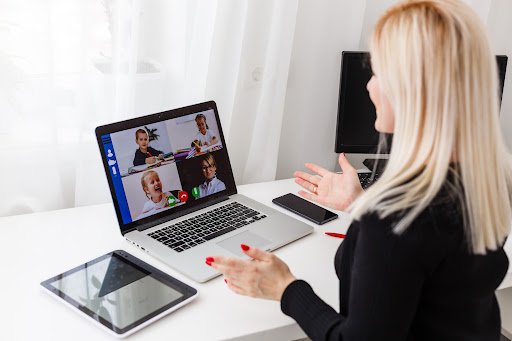Teaching online is not a cakewalk. It is not as simple as getting a device and turning the recording on but it is not as difficult as climbing the mount Everest either.
When COVID-19 hit us, no one knew how to deal with it. When even doctors didn’t know what the cures for this life-threatening disease are, how can you ask the teachers to manage it then? But, few months in the pandemic and we realised that something has to be done. There were certain drawbacks in the policies that made the schools first to close and last to open when the opposite should have been the right way of doing that. And, we are still unsure of when we are again to hear the rattle of the school desks again.
But, there is no doubt about the fact that learning is not just about the timely completion of the lesson plans, it caters to the overall development of a child. We must understand that it is not just the education we are talking about but we are dealing with how the child is going to fare in his life when he grows up into an adult.
Life tests you at every step and that makes it necessary for an individual to learn the basic guiding principles that ensures his easiest acceptablility into the community life. For an individual is a human who is by virtue a social animal. A child learns the first impression of how he is going to address the people around him, how his demeanour should be etc from his school life. It is all the more important for children who falls into the toddler category. But, in the absence of this in-person physical based learning, we certainly have to devise new methods so that we don’t comprise on the essential factors that corresponds to learning the most.
And, that is why I said it is not a cakewalk. Let me illustrate it with more examples. Ever read a book and then watched a movie on the same? If you have, let me have the liberty to state that each experience is wholesome on its own. You would also agree when I say that, that both the experiences would certainly have been different no matter the content that have been used for the purpose of creating them was all the same.
What do we understand from this?
That you cannot just simply apply one way of approaching the content to a completely different environment even if you are dealing with the same content in both the cases. So, offline learning and online learning has to teach the same thing but in entirely different ways to not comprise on the quality of how it is received.
That simply brings us to the question that how to teach online? How to bridge the gaps that develop when transitioning to other mediums of broadcasting the same information?
First and foremost, stop using the word “same”. When you are transitioning to a completely different medium, you can’t help but change the curriculum too so that it suits the newer ways of teaching. Go back to the example I gave. The content in both the movie and the book was same but the experience have been different because the same content manifested in different ways. Let me also tell you that didn’t happen automatically just because the medium was changed. There was so much of science that went into it. The content was omitted, re-written, intertextualized wherever required so that the transition is smooth, sound and logical. That’s exactly what we have to do in the field of education.
We introduce audio-visuals, games, quizzes or whatever required so that the goal of catching the maximum retention from the student’s side is accomplished. Technology is embedded that can bring meaningful outcomes so that students’ social needs are not comprised as well. Teachers are trained for the same. If we fail to address this critical issue, we would end up isolating the children further into a world which has already been caught in the grip of digital isolation.
Online teaching through mobile is something that students are finding very easy and affordable these days. Well, it should be so but care should also be taken as students might get into other counter-productive things in the guise of using the mobile phones for learning purposes.
I believe, we have a greater responsibility in the new modes of teaching. But, it is not a cause of worry because if timely, planned and guided interventions are put in place, online learning has the capacity to far outpace the traditional modes.
